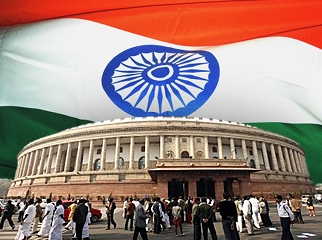 India continues to move closer to legalized sports betting in the wake of the headline-grabbing spot-fixing scandal that overshadowed this year’s Indian Premier League (IPL) cricket series. The Ministry of Sport, which had already been considering drafting a betting law prior to the controversy, has teamed up with the Law ministry to craft new legislation. Rather than amend existing legislation, a standalone bill is currently circulating in draft form under the working title of the Prevention of Dishonesty in Sporting Events.
India continues to move closer to legalized sports betting in the wake of the headline-grabbing spot-fixing scandal that overshadowed this year’s Indian Premier League (IPL) cricket series. The Ministry of Sport, which had already been considering drafting a betting law prior to the controversy, has teamed up with the Law ministry to craft new legislation. Rather than amend existing legislation, a standalone bill is currently circulating in draft form under the working title of the Prevention of Dishonesty in Sporting Events.
As might be expected, the two ministries are squabbling over the bill’s focus. The Law ministry wants to make spot- and match-fixing expressly illegal, while the Sports ministry believes such activity can only be effectively monitored if betting is legalized. The Hindustan Times quoted a senior Sports ministry official saying there was “no clarity in the draft and we feel it would be difficult to implement.” As written, the bill calls for jail terms of up to five years for individuals caught engaging in fraud – whether by technology, verbal communication or visual signing – to produce a desired outcome of a match. Assuming the two ministries can arrive at a consensus, the draft bill will then be circulated for public comment.
Support for legal sports betting has also come from Farooq Abdullah, Minister for New And Renewable Energy. Abdullah told reporters that betting was going on “worldwide” so “why not in India?” Earlier in the week, parliamentarian and industrialist Vijay Mallya – whose business interests include the UB Group, brewers of Kingfisher beer – tweeted his support for legal betting. “Indians bet on anything. Huge bucks n all underhand. Why don’t we legalize betting and earn revenue?”
(Mallya wasn’t exaggerating about the ‘bet on anything’ part. A recent report in the Asian Age revealed that bookies located near the famous Manikarnika Ghat cremation ground routinely offer wagers on whether the next body that turns up will be male or female, the type of vehicle in which the deceased arrives, and the type of wood the relatives choose to ‘toast’ their dearly departed. According to a local bookie, the betting is conducted entirely by mobile phone to avoid suspicion. “The local people like shopkeepers and priests … think we are simply loitering around doing nothing.”)
Many Indians enjoy a more formal type of betting via online gambling sites, many of them based in the UK. Indian gambling laws predate the internet, but the government has argued that online wagering is nonetheless illegal under the Public Gambling Act 1867 and the Indian IT Act 2000 (the latter deals with ‘cybercrime,’ which the government argues includes gambling). But India doesn’t IP-block international online gambling sites, and the superintendent of cyber crime in Bangalore told The Hindu that the police have yet to receive any public complaints regarding the sites for one good reason: “Why would anybody lodge a complaint when they are playing and benefiting?”
Horseracing is the only activity on which the federal government has authorized legal wagering, and another state has just decided to join the party. On Tuesday, the state government in Punjab approved the Punjab Horse Race (Regulation and Management) Act, 2013, which authorizes the operation of horseracing tracks in the state and wagering on the outcome of races. At the same time, the Punjab Cabinet authorized the state lottery to offer lottery games via a network of computer terminals at approved retail locations.






